Improving the use of medication
Sophie Lauzier and her team are developing support programs for women with breast cancer and optimizing their use of oral treatments.
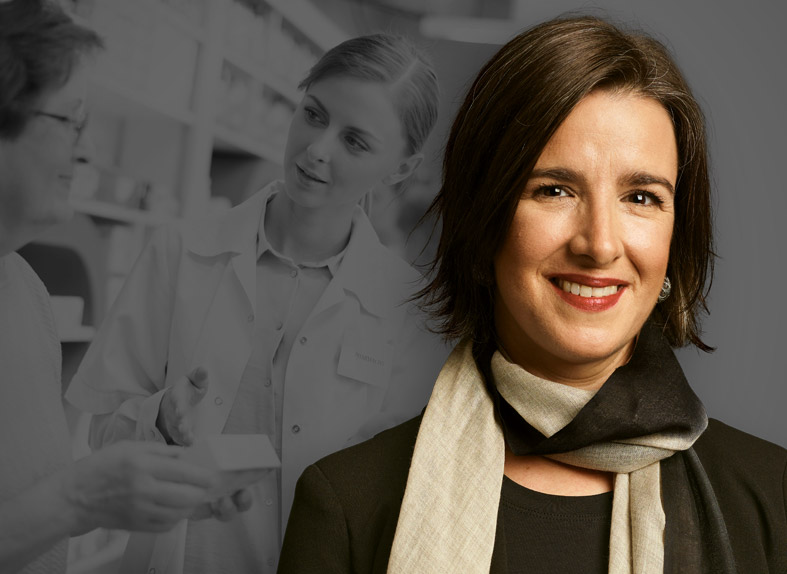
Project architects
Sophie Lauzier
Associate Professor, Faculty of Pharmacy
Researcher at the CHU de Québec – Université Laval Research Center
Researcher at Centre des maladies du sein Deschênes-Fabia, CHU de Québec – Université Laval
Member of the Michel-Sarrazin research team in psychosocial oncology and palliative care (ERMOS)
Team
- Véronique Turcotte, research professional
- Mauranne Labonté, master’s student
- Laurence Lambert-Côté, master’s student
- Frank Zongo, visiting researcher
- Anne-Déborah Bouhnik, biostatistician
- Anne Dionne, pharmacist
- Martine Lemay, oncology nurse navigator
- Louise Provencher, surgical oncologist
- Julie Lemieux, hematologist-oncologist
Partners
- Centre des maladies du sein Deschênes-Fabia, CHU de Québec – Université Laval
- SESSTIM Joint research unit (health economics and social sciences, medical information processing), Université Aix-Marseille, France
Better understanding the use of adjuvant hormonal therapy
Adjuvant hormonal therapy is a 5- or 10-year daily oral treatment prescribed to women with hormone-dependent breast cancer to reduce the risk of recurrence. To better understand the issues surrounding its use, Sophie Lauzier and her team combine:
- Qualitative studies that explore women’s perspectives on and experiences with the treatment
- Statistical analyses of large data sets to identify patterns of treatment use
Developing better tools to support patients
By better understanding patient needs, insights, and experiences, the team developed SOIE, a program to support, equip, inform, and inspire women to help one another. It includes educational information, testimonials from women, and instant messaging sessions with health professionals. Participation and consultation are at the heart of the process: like the other health stakeholders taking part in the project, the women involved analyzed and reviewed the tools to ensure they met their needs.
Evaluating SOIE with a pilot study
The team is now preparing to test SOIE in a pilot study involving 100 women. Half of them will participate in the program, while the other half will continue to receive the standard services. Using questionnaires and interviews, the team will investigate the program’s effects on women’s experiences during treatment. Master’s student Mauranne Labonté is already working to adapt some components of SOIE to community pharmacy services.
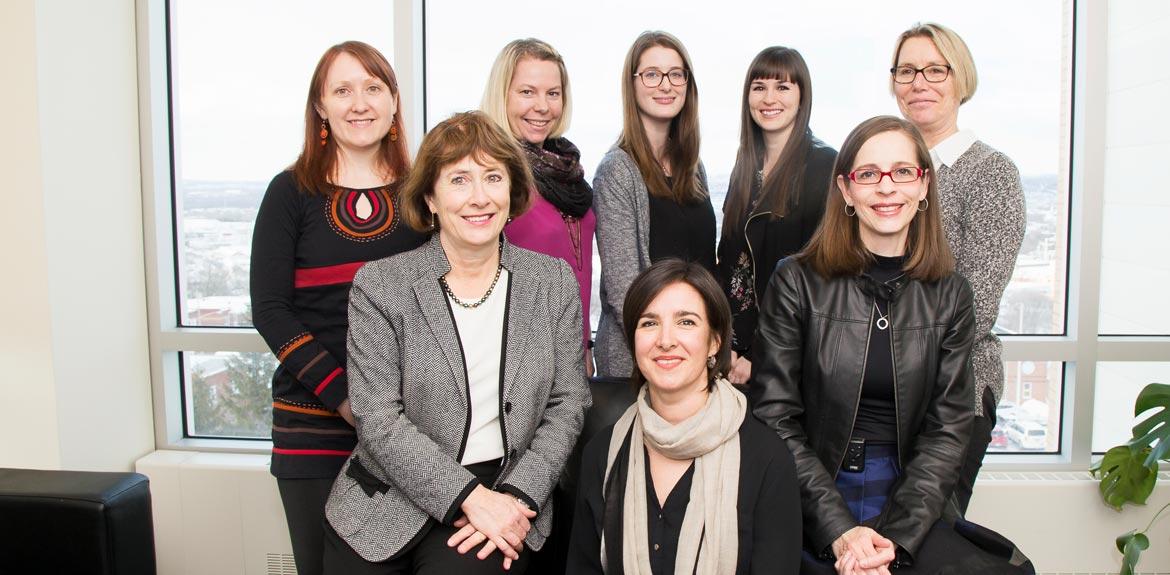
To develop SOIE, Sophie Lauzier has surrounded herself with health professionals, including oncology nurse navigators, doctors, and pharmacists.
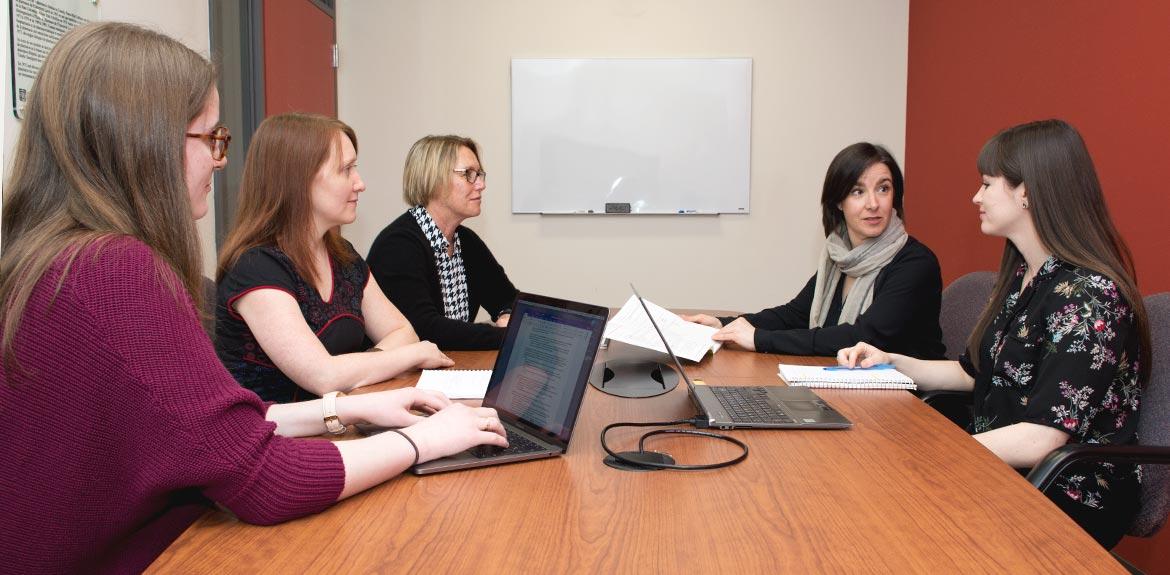
The multidisciplinary team meets regularly to build tools for SOIE and discuss recent developments.

SOIE will provide patients with support and information through personalized calls from an oncology nurse navigator.
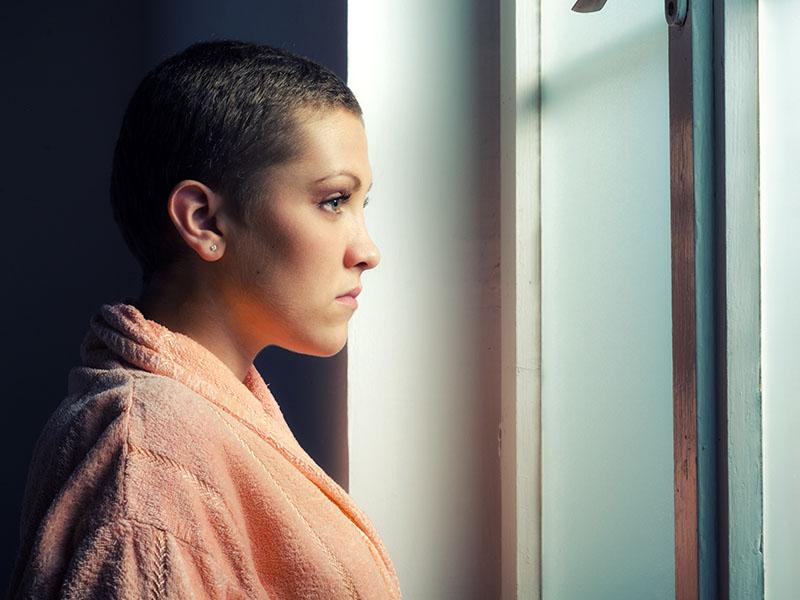
Breast cancer is the most common form of cancer among women in Canada and 75% of cases are hormone-dependent.
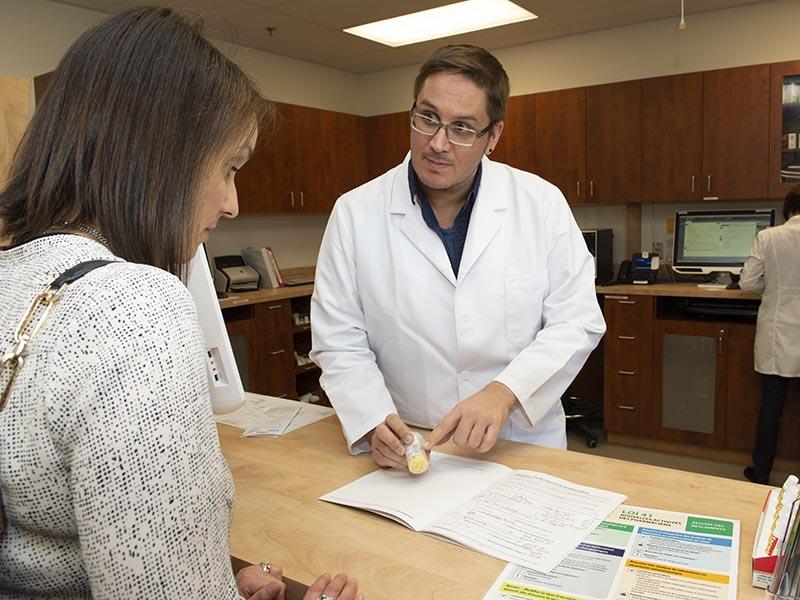
Breast cancer is the most common form ofSophie Lauzier’s team creates tools to help pharmacists meet patient needs and reduce isolation. cancer among women in Canada and 75% of cases are hormone-dependent.
What's next
Use of oral medications is increasingly widespread in the field of oncology, posing a number of challenges for patients and healthcare professionals. The approach taken and tools developed by Sophie Lauzier and her team, in partnership with Centre des maladies du sein Deschênes-Fabia du CHU de Québec – Université Laval, can be adapted to other types of cancer and different care settings.